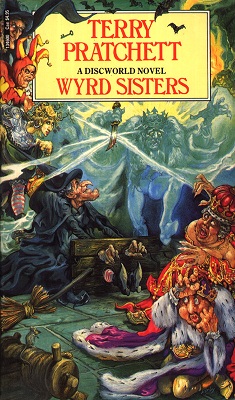Charlie Stross has an interesting idea:
For the 2016 Hugos: the ENTIRE DISCWORLD SERIES is eligible, as a completed work, under Best Novel. … I think I'm going to nominate it.
— Charlie Stross (@cstross) September 14, 2015
To clarify, novel series are currently eligible for the Best Hugo Award, as seen by the inclusion of The Wheel of Time last year, though it’s of course arguable whether or not the Discworld series could be seen as a single story under its rules. If not, one could also argue that with the last Tiffany Aching novel having been released, that particular sub-series should be nominated instead.
Should this be done? That’s a harder question to argue. Terry Pratchett himself declined at least one Hugo nomination some years ago and while a nice gesture, he himself is of course not around anymore to see it. Quality wise the Discworld series in parts is as good as anything that ever won a Hugo, while even its worst parts are nowhere near as bad as the worst novels to have won the Hugo. But still, should the Best Novel Hugo go to a sentimental gesture? Or would it be better to just nominate the last Discworld novel ever on its own merits?
I don’t think I would include the series on my ballot, as a) I don’t like the idea of having proper novels compete with series anyway and b) I’d rather see a living author get the recognition. Pterry really doesn’t need a Hugo, even if it is a nice gesture. However, I reserve the right to change my mind if I can’t find five worthy novels to nominate this year.


